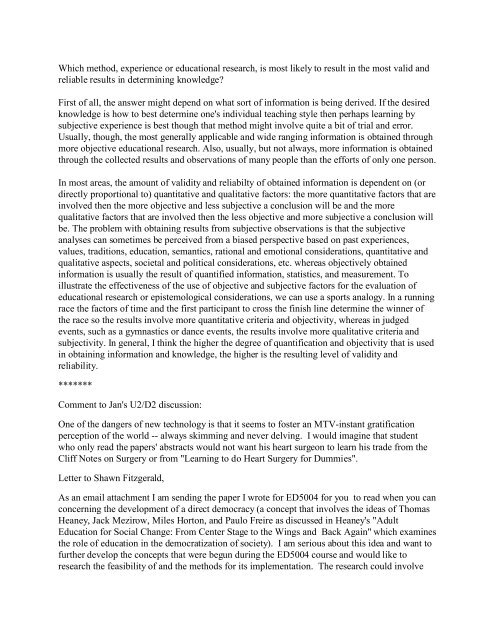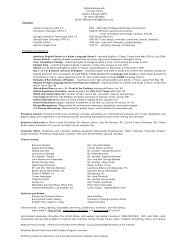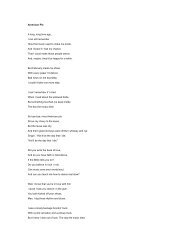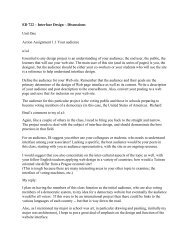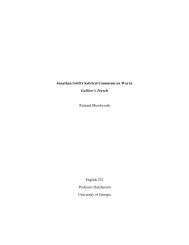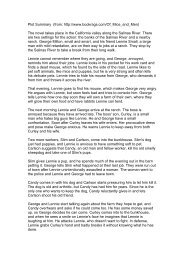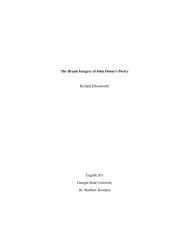Research Methodology, pdf - 2B2B.org
Research Methodology, pdf - 2B2B.org
Research Methodology, pdf - 2B2B.org
You also want an ePaper? Increase the reach of your titles
YUMPU automatically turns print PDFs into web optimized ePapers that Google loves.
Which method, experience or educational research, is most likely to result in the most valid and<br />
reliable results in determining knowledge?<br />
First of all, the answer might depend on what sort of information is being derived. If the desired<br />
knowledge is how to best determine one's individual teaching style then perhaps learning by<br />
subjective experience is best though that method might involve quite a bit of trial and error.<br />
Usually, though, the most generally applicable and wide ranging information is obtained through<br />
more objective educational research. Also, usually, but not always, more information is obtained<br />
through the collected results and observations of many people than the efforts of only one person.<br />
In most areas, the amount of validity and reliabilty of obtained information is dependent on (or<br />
directly proportional to) quantitative and qualitative factors: the more quantitative factors that are<br />
involved then the more objective and less subjective a conclusion will be and the more<br />
qualitative factors that are involved then the less objective and more subjective a conclusion will<br />
be. The problem with obtaining results from subjective observations is that the subjective<br />
analyses can sometimes be perceived from a biased perspective based on past experiences,<br />
values, traditions, education, semantics, rational and emotional considerations, quantitative and<br />
qualitative aspects, societal and political considerations, etc. whereas objectively obtained<br />
information is usually the result of quantified information, statistics, and measurement. To<br />
illustrate the effectiveness of the use of objective and subjective factors for the evaluation of<br />
educational research or epistemological considerations, we can use a sports analogy. In a running<br />
race the factors of time and the first participant to cross the finish line determine the winner of<br />
the race so the results involve more quantitative criteria and objectivity, whereas in judged<br />
events, such as a gymnastics or dance events, the results involve more qualitative criteria and<br />
subjectivity. In general, I think the higher the degree of quantification and objectivity that is used<br />
in obtaining information and knowledge, the higher is the resulting level of validity and<br />
reliability.<br />
*******<br />
Comment to Jan's U2/D2 discussion:<br />
One of the dangers of new technology is that it seems to foster an MTV-instant gratification<br />
perception of the world -- always skimming and never delving. I would imagine that student<br />
who only read the papers' abstracts would not want his heart surgeon to learn his trade from the<br />
Cliff Notes on Surgery or from "Learning to do Heart Surgery for Dummies".<br />
Letter to Shawn Fitzgerald,<br />
As an email attachment I am sending the paper I wrote for ED5004 for you to read when you can<br />
concerning the development of a direct democracy (a concept that involves the ideas of Thomas<br />
Heaney, Jack Mezirow, Miles Horton, and Paulo Freire as discussed in Heaney's "Adult<br />
Education for Social Change: From Center Stage to the Wings and Back Again" which examines<br />
the role of education in the democratization of society). I am serious about this idea and want to<br />
further develop the concepts that were begun during the ED5004 course and would like to<br />
research the feasibility of and the methods for its implementation. The research could involve


